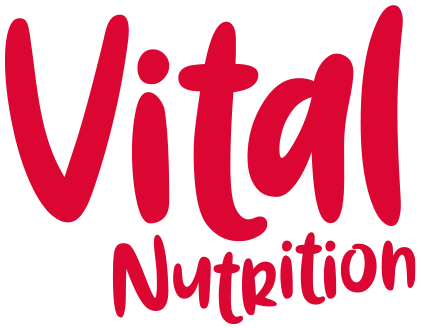Nutrition for Thyroid Balance
The thyroid is a little butterfly-shaped gland that sits in your throat and is responsible for metabolism. It is regulated by the pituitary gland in our brain, where TSH (thyroid stimulating hormone) is produced. This sends a message to the thyroid to release thyroid hormones like T4 and T3. These are the hormones your GP will test if it is suspected that your thyroid is out of balance.
When things go wonky with your thyroid, it can affect everything. From energy levels and mood, to weight and digestion.
Thyroid imbalance is really common and can affect the structure or function of this important little gland. The two main types of thyroid diseases are:
Hypothyroidism (underactive thyroid): Signs and symptoms include fatigue, difficulty losing weight, low mood, hoarseness, dry skin, feeling cold, dry skin, thinning hair, constipation, low libido, PMS, and difficulty concentrating .
Hyperthyroidism (overactive thyroid): Signs and symptoms include weight loss, anxiety, irritability, anxiety, heat intolerance, diarrhoea, loss of libido.
There are lots of reasons why our thyroid can get knocked out of sync. Stress, viruses, immune conditions, certain medication and trauma can be triggers.
If a blood test has shown that your thyroid is out of balance, you have probably been prescribed medication by your GP, but have you stopped to consider what else you can do to help support your thyroid?
How can nutrition help my thyroid?
Lifestyle, stress management and diet can play a role in supporting overall health, so if you have been given a diagnosis of thyroid imbalance, or is you suspect it might be an issue for you, here are some things that may help.
Pack in as many different coloured fruit and vegetables as you can. These contain antioxidants that are important for thyroid health.
Some people find there are certain foods that adversely affect their thyroid. These include gluten-containing grains (like wheat, oats, rye and barley), peanuts, soya and raw brassica veg including raw broccoli and raw cabbage (cooking inactivates this inhibitory effect).
Found in seaweed, fish and sea salt, iodine is a key nutrient for thyroid balance. Get it through your diet rather than as supplement if you are on thyroid medications.
Forget low fat diets. Your thyroid needs a balanced intake of essential fats, so don’t cut these healthy fats out of your diet. Omega 3, found in oily fish, flaxseed, walnuts and chia seeds is particularly important. These healthy fats will not contribute to weight gain, so don’t skip them from your diet.
Zinc and selenium are important nutrients too. Get them in nuts and seeds (especially brazil nuts), seafood and meat.
The friendly bacteria in our gut plays an important role in thyroid balance, so help to keep yours happy and balanced by eating probiotic foods like live natural yoghurt or kombucha.
Some other essential nutrients for your thyroid include:
Calcium - dairy products, nuts, seeds, tahini and green vegetables are good sources.
Magnesium - found in nuts, seeds, dark green vegetables and cacao
Vitamin A - get yours in green leafy vegetables, cheese, milk, eggs, oily fish and yoghurt
Vitamin D - the sunshine vitamin. A daily supplement may be beneficial
Anything else I can do?
Stress plays havoc with thyroid function, so do what you can to build in rest and relaxation to your daily routine.
Quit the sugar habit. Sugar continues to weight gain and can have a detrimental effect on thyroid function. Start by cutting out obvious sugars and find lower sugar alternatives to help wean yourself off the sugar habit.
Daily exercise like walking, yoga, swimming or cycling can help with stress and thyroid balance.
Avoid processed foods that are devoid of much nutrition, This includes low fat foods, diet foods and other junk food.
This blog post first appeared as my column in The Irish News on Saturday 7th May 2022.

